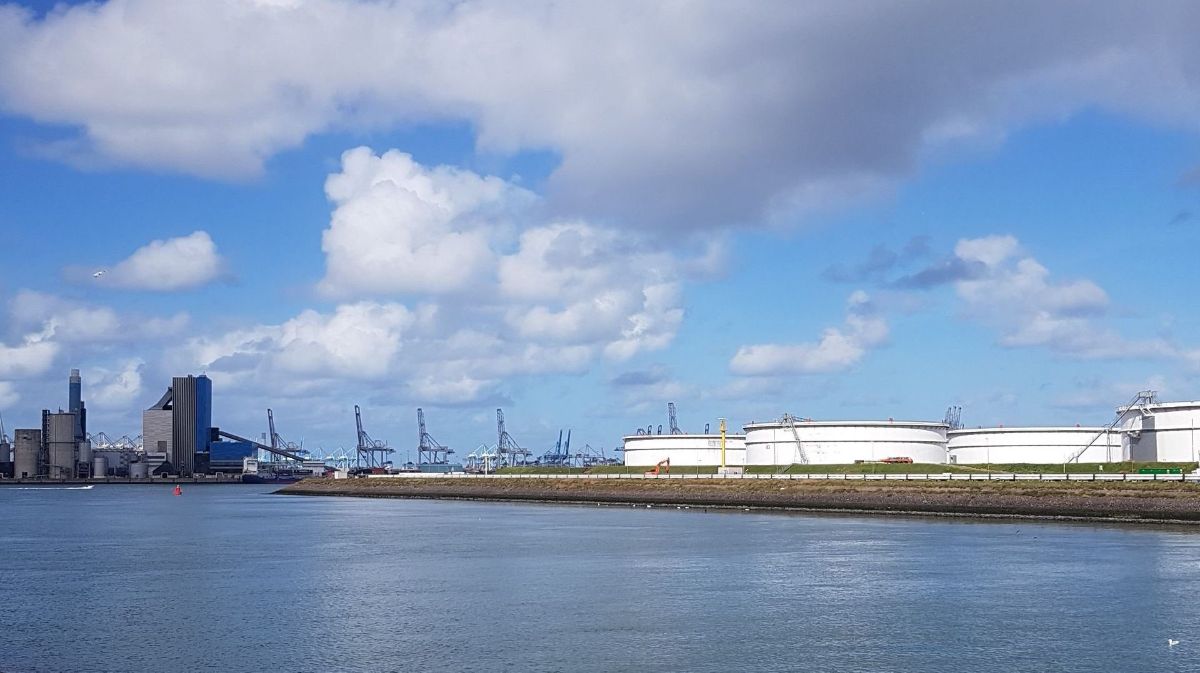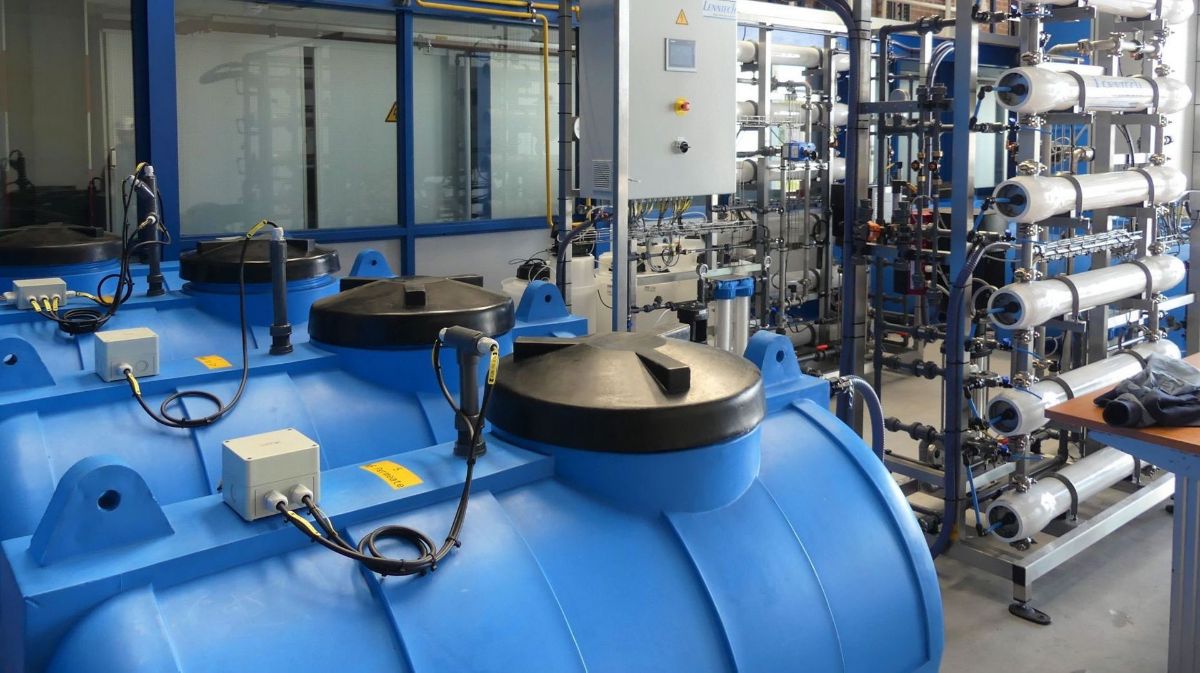Kickstarting industrial circularity in the Port of Rotterdam
- 2 December 2018
-
Press Release
Share article:
| ROTTERDAM, 19 NOVEMBER 2019 — In one of the largest petrochemical clusters in Europe, ZERO BRINE is launching the first pilot of its innovative technologies to recover all resources from brine (high-salinity impaired water) in Rotterdam Port. As of today, brine from the Evides demineralized water plant (DWP) will undergo a sequence of technologies allowing the subsequent recovery of minerals of commercial value, capitalizing on the environmental and – in many cases – costly challenge of brine. |
 Port of Rotterdam, Image by Frithjof Kuepper |
| Demineralized water is an essential commodity required for the many industrial processing facilities in the Rotterdam Port. This water is provided by the Evides DWP – one of the largest demineralized production facilities in Europe. The current technology uses ion-exchange softening combined with reverse osmosis (RO), among other technologies. The Pilot Site 1 technologies have been provided by project consortium members including the Dutch water treatment company Lenntech (nanofiltration), the National Technical University of Athens (evaporator) and the University of Palermo (crystallizer). The technologies have been developed and tested both in laboratory and at bench-scale, as well as on an individual basis over the past year at industrial pilot-scale. The pilot is coordinated by the Delft University of Technology. |
 Pilot Site 1 at Plant One Rotterdam, Image by REVOLVE |
| The preliminary techno-economic evaluation of this pilot plant shows that although full-scale operation to meet set targets requires high capital investment, a return on the initial investment would be expected around 8–10 years due to savings on environmental costs and the internal and external valorization of recovered products. Circular industrial processes are essential to develop a sustainable, low carbon, resource efficient, and competitive economy in the EU. Recovering all resources from wastewater enhances preserving resources and security of supply. Magnesium, one of the pilot’s recovered minerals, is identified by the European Union (EU) as one of 27 critical raw materials, of which it is currently 100% import-reliant, with China accounting for 94% of all magnesium supplied to the EU. The ZERO BRINE project is facilitating the implementation of the EU Circular Economy package and the Sustainable Process Industry through Resource and Energy Efficiency (SPIRE) Roadmap in various process industries by developing the necessary concepts, technological solutions and business models to redesign the value and supply chains of minerals and water while dealing with present organic compounds in a way that allows their subsequent recovery. The project sets a precedent for industrial circularity and a new generation of innovative, resource-efficient European business. Two additional pilot plants are already in operation, including at a coal plant in Gliwice, Poland and a silica plant in Zaragoza, Spain. A textile factory pilot installation near Istanbul in Turkey is under construction with a field visit for industry experts and media scheduled to take place in 2020. For more details on the ZERO BRINE pilots, please see our media kits. Contact us for more information, interviews and upcoming field visits. |









